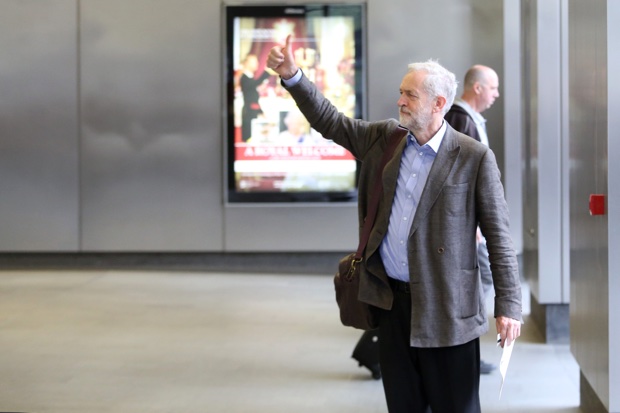Jeremy Corbyn’s first policy pronouncement as Labour leader hasn’t been all that surprising: he wants a ‘People’s Railway’ that will bring the railways back into public ownership line by line. He will have noticed the excited noises that party members made at hustings whenever he mentioned rail renationalisation – and the impatient sighs from the same audience when his rivals for the leadership were cool on the issue.
But as Peter Kellner explains today, even though this individual measure is popular, unless Corbyn is able to deal with the public’s fundamental lack of trust in Labour over the economy, he could promise voters every single retail offer they’ve ever dreamed of and they still wouldn’t back his party. This was what lulled Labour into a false sense of security earlier this year: voters liked the party’s retail offers, but still said they preferred the Tories on the economy and on leadership. So to do the same thing as the Miliband administration did, which was to dangle nice-looking things at voters in order to distract them from their worries about the economy, would be rather foolish.
Of course, this is just the first pronouncement from Jeremy Corbyn – and as his supporters always say, rather furiously, it is too early to say what his leadership will look like, really. But given most accept that the party didn’t act early enough to stop a Tory narrative about Labour’s overspending taking hold after the 2010 election, Corbyn should be wary of missing his opportunity to have a go at countering a similar narrative that the Tories are constructing now.
His supporters believe that he should seek to persuade voters who are largely supportive of austerity that it is in fact bad. This will arguably take more time than just rehabilitating Labour’s image as a party that cares about cutting the deficit – if it is indeed possible. Jon Cruddas told the Spectator last week that it was a ‘high wire act’ because there is little data to support the idea that voters just need shaking from their delusion that reducing the deficit through public spending cuts is a bad thing.
The data that Cruddas has produced for his independent inquiry into what went wrong at the election should leave Corbyn and his team shaken. Below are two heat maps that show us what happened to Labour support across the electorate, which the review divided into three main groups.
The Pioneers, who make up 34 per cent of voters, are spread evenly through different age groups, are socially-liberal and more altruistic than other groups of voters, metropolitan, creative and more likely to vote according to their personal ideals and principles. They tend to be better off and have attended university. In case you can’t quite imagine who would fit this description, it’s largely where the Labour membership comes from.
The Prospectors are aspirational voters who make up 37 per cent of the electorate. Their priorities are improving their social status and material wealth and have little interest in politics. They are pragmatic voters who switch between parties and tend to be younger.
The Settlers make up 29 per cent of voters and are socially conservative, concerned with home, family and national security. They want to avoid risk and value tradition, rules and social order. They tend to be older voters.

The first heat map of support for the Labour party is from November 2014 and shows a reasonable spread of support across those three groups, albeit with less enthusiasm amongst the Settlers.

But at the General Election, support cooled in all but the Pioneer group of voters. This heat map illustrates rather dramatically the extent to which Labour had a niche appeal in May 2015.

Now, many people in the Pioneer group might argue that everyone should be more like them, with altruistic values that mean they vote for the good of society rather than their own advancement. But the point is that not everyone does think like a Pioneer, and unless Jeremy Corbyn is able to change the values of 66 per cent of the electorate, not everyone will have that outlook in 2020. Indeed, Pioneeers should realise that worrying about your home, family and national security isn’t a particularly abnormal thing to do: it would be odd not to worry about your children or the safety of your country (which in itself is a form of altruism). Similarly, it is not odd for someone to aspire to advance themselves materially, particularly if they are from a humble background and wish to provide for their family. Those groups who may seem alien to many Labour members are as honest, hardworking, or as dishonest and lazy as those in their own electoral group.
More importantly than that, they’re sufficiently numerous as to be impossible – or at least foolish – for those seeking a general election win in 2020 to ignore. And if retail offers didn’t work this year, there’s no evidence that they’ll work again. So if Jeremy Corbyn is in the business of setting out a lot of policy quite early, he should turn his attention to the issue of Labour and the economy, and wait a bit longer to talk about the nice-sounding policies.







Comments